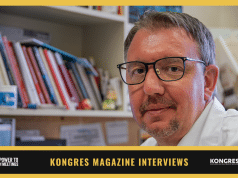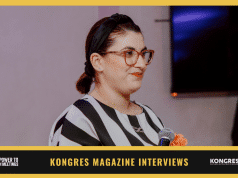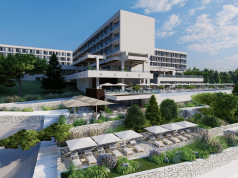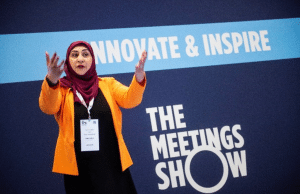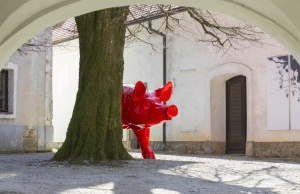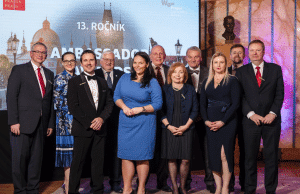Can you give us a short description of your position in the company?
Being the Managing Director I look after the functioning of the company. I oversee all of the company finances, I plan sales activities, I assign tasks to employees and I check and evaluate completed activities.
What are key activities of Liberty International Group and what made you decide to become a part of it?
The Liberty International Tourism Group is a successful international company that has been working on the international tourist market for over 20 years. The company grew from one office into an international corporation with 43 offices in 33 countries in various parts of the world. We joined the corporation 6 years ago, mostly because we saw that access to overseas clients would be made easier this way.
How does the corporation function and what are the main advantages for its members?
The key information is the fact that this is not a corporation that could function on the basis of franchise system. Rather, each case is dealt with on a ‘per se’ basis. Owners and local management are linked – this way financial stability and security is ensured, which is extremely important in today’s uncertain situation.
The corporation operates on two levels: on one level there are individual branches that operate with classic incoming tourism, on the other there are branches that work exclusively in the meetings industry sector. Nevertheless, the reality is that the changed market conditions have made it impossible to have two separate functions in branches that only have one small office (as is the case in Slovenia). One of the key advantages of being a part of the corporation is no doubt access to a client’s market, although we have to point out that individual destinations often compete for the same client. The second advantage is shared marketing activities, such as shared exhibition space on international tourist exhibitions and the organisation of acquisitions where a key role is played by our sales representatives.
How strong is Liberty Slovenia when compared to other branches and what is its role within the entire corporation?
Liberty Slovenia is among the smaller branches, nonetheless we are always treated as an equal member of the corporation when dealing with common issues. I could draw attention to this being another positive trait. Liberty International is not managed centrally and it does not force decisions on its members – it functions as one big family.
Being part of an international corporation – what is the key added value for your clients?
I could say that the key added value is the high level of our services, which is a part of Liberty’s philosophy. Equally important is financial stability and security, especially in today’s environment, when we daily hear of some of our competitors going bankrupt. Liberty International has managed to stay financially totally sound, which is a consequence of the decision of our management to postpone some of the activities that were previously planned in times of expansion.
Describe five of your key products and tell us in which direction your offer is heading?
Up to the end of 2008 we focused the majority of our activities and efforts on the meetings industry. Then the crisis came and we realised that it is not a good idea to ‘put all our eggs in one basket’. Hence we started to work in the classic field of incoming tourism, so we started to work on the so called serials for Asian guests, for whom we organise group excursions in Slovenia and in other SE European countries. We also dedicate a lot of our attention to smaller specialised groups that visit us because of some special characteristics, like culinary experiences, wine, sports, culture and so on.
Lately we have started to put a lot of our efforts into sustainability and social responsibility, as we believe that Slovenia has an advantage in these areas and this is also my general life philosophy. We were the first destination management company in this part of the world that won the prestigious Green Globe international certificate. We are not only dealing with incoming tourism, however. We are also proud of our department for organisation of trips abroad. We are the only organiser of trips to sub-Saharan Africa and every year we take there a substantial number of Slovenians and guests from neighbouring countries.
When developing your offers and products do you follow Liberty policies or do you develop them in accordance with local conditions?
Liberty’s policies are giving us basic directions, however it is impossible to expect that one policy will be equally successful in every country. That is why the management gives us a lot of freedom in terms of development of offers and products and they are even encouraging us to do so.
How important to you are the clients you get through the Corporation and who are your clients that you acquire beyond the corporation?
For us it is not important whether the client came through the Corporation or from outside of it. Every client is equally important to us and we fight to convince him to entrust us with a certain project. In this sense the corporation can also have some disadvantages. For instance, it can be a case where something is done badly by one of the branches and consequently every branch can lose the client. Because of this we work really hard to offer the same level of services globally. Clients we get from outside of the corporation are mostly from countries where we do not have sales representatives.
Market conditions have changed dramatically over the past few years, mostly for the worse. How have straitened economic conditions affected your business?
As I mentioned before, the situation has forced us to think on different levels and develop new products. Unfortunately it often happens that those that should help us in this situation turn their backs on us. Here I think of the state, which in my opinion has taken the completely wrong approach when it comes to the meetings industry and is not aware of its importance and the effects it has on the complete economy. I am not only talking of financial help and subsidies, which are inexistent or too small. What I have in mind are the basis of our work. We have the case of our national air carrier, Adria Airways. Because of the alleged loss-making they cancelled flights to some European capitals, which are key to our industry. Because of cancelled lines to Paris our company lost €200,000 worth of confirmed reservations, which for us is irreparable economic damage and for which no one will be held responsible. Instead of helping us in the deepened economic situation, the state is making our business more difficult.
You have dedicated you career to tourism. What have been the key milestones that have brought you to the position you are in today?
Love of travelling was probably instigated by my parents. I travelled quite a bit with them and this love of discovering new places continued as I grew up. I always liked to return home from my travels and this inspired me to learn about more of our places, not only foreign ones. Circumstances made me work more actively on incoming tourism. Partly also my character is to blame, as I enjoy dynamic and varied business and tourism is definitely dynamic and varied.
In an increasingly competitive world the flexibility of small companies is definitely an advantage. Your company is small and flexible, yet you are a part of a bigger story. What are the advantages of both of these positions and where do they both have their negative sides?
Yes, it is true. Flexibility and adaptation to the new economic situation is a must and here Liberty played an important part globally. We are not a rigid monster that takes a lot of time to adapt; rather we are a group of smaller, relatively independent units that can react quickly. Of course, it is the task of each individual branch to adapt to the new, changed situation.
Kongres Magazine is celebrating its 5th anniversary this year. The meetings industry has seen better days – what are your expectations for this year?
My expectations for 2012 definitely remain positive. If I were a pessimist, I would have done better to close the company 3 years ago when the crisis started. Nevertheless, it is hard to predict the future, as the way our clients think has changed dramatically and even decisions for larger projects are taken on relatively short time scales. That is why I can only say that our goal should be to keep the company stable and to grow, although with smaller steps.
How has your offer adapted to the current situation and have all the consequences been negative?
As I mentioned already, the crisis forced us to think and our answer to the crisis is a diversification of our products. Losing a part of our business is definitely the biggest negative consequence, nevertheless every negative thing also has a grain of positivity, and that is what we need to identify and build on.
In 2012, what will be the main reasons that clients will choose you?
Despite shrinking budgets, the quality of our services remains unchanged and this is our main comparative advantage. In 2012 we will strive to come up with original ideas and come up with proposals that are adapted to the needs of each individual client. Last but not least, we will continue to work with an unchanged level of enthusiasm, positive energy and an outlook that ‘every problem has a solution’… If I may use the words of one of our clients … “it is a real pleasure to work with you, as the word impossible is practically non-existent, you always try to find a suitable solution”.
When moving in new directions what is your guiding principle and where do you look for new opportunities?
When taking new directions, I’m partly guided by my experience and partly by my intuition. This is especially true for new opportunities that I look for where I believe there is a strong chance they will develop into something positive and not just a waste of time and money. Of course, this is hard to know in advance and often things only show the way they will go after a certain period of time. New opportunities are often affected by education; that is why I try to educate myself as much as possible and share experiences with my colleagues.
Which event that you organised are you especially proud of and would like to do again? Are ‘re-runs’ part of your philosophy or do you always look for new ideas?
I think I’m most proud of the two car launches we’ve done for Renault. This was a very complex event that some 1,000 foreign journalists saw over a period of a month. One event was done in Slovenia and the other a year later in Croatia. In our business it is hard to avoid ‘re-runs’ completely. We are striving to upgrade and adapt each event to the needs of each client.
What is the secret of your success?
I believe in what I do and I do it with my body and soul.
Every family has its story. What is your family’s story?
I have always been interested in travelling, later foreign languages came too. When I finished my high school I needed to choose which faculty to go to and at the time I was thinking of either law or economics. I passed the entrance exams for both, but decided to follow economics. The reason was probably my father, who at the time had a company in Austria where I occasionally helped with some activities. As the economics course didn’t really enchant me after a while, I took some exams and changed to the Faculty of Social Sciences, where I started to study International Relations and I really enjoyed myself, as the programme was very dynamic and interesting. Whilst studying I started to work as tourist guide, which was definitely the right work for me. In the meantime I also tried to work as a journalist on television, however the wish to ‘conquer the world’ was stronger. That is why I took some time off after I finished my exams and spent half a year travelling around SE Asia. After a short break back home in Slovenia (after all, I needed some money for my endeavours!), I spent half a year in South America. As I do not like unfinished stories I graduated from the Faculty of Social Sciences, then finished a second degree of Economics. It looks like the work as a tourist guide and my travels had decided my path. I spent some time toying with the idea of working in diplomacy, however tourism won out. I opened a travel agency with a colleague of mine and our main products were trips to Egypt and vacations on the Red Sea. We brought quite a few charters of Slovenian and Croatian guests to Egypt until we realised that we had different views on further development of our company and decided to go our separate ways. By coincidence I came into contact with the owners of Liberty International and we decided to work together.
Are you a sports fan?
For me sport is a way to relax and stay in good mental and physical condition. Every sport is interesting in a way and I have a lot of respect for all athletes, because I know how much effort and denial they’ve gone through to succeed. I have no sport that I could say I am ardent supporter of; when I was young I always watched alpine skiing competitions on TV. Today this would not be possible because of my life style and the nature of my work.
Which nation’s culture and habits do you have a special affinity towards?
I respect all nations and cultures and getting to know different cultures and traditions is one of the reasons that always attracted me to travel. Out of the European nations, the Greeks are closest to me, but generally I love sub-Saharan Africa and I visit it at least once a year.
Which persons affected your personality most strongly?
I could say that these were my parents, who taught me values that became the foundations for my future life.
Which type of music fills you with adrenaline?
Rock … when I listen to quality rock I feel I draw energy from the music.
Your life motto?
Act correctly and honestly. Unfortunately this motto has come to have less and less significance.


